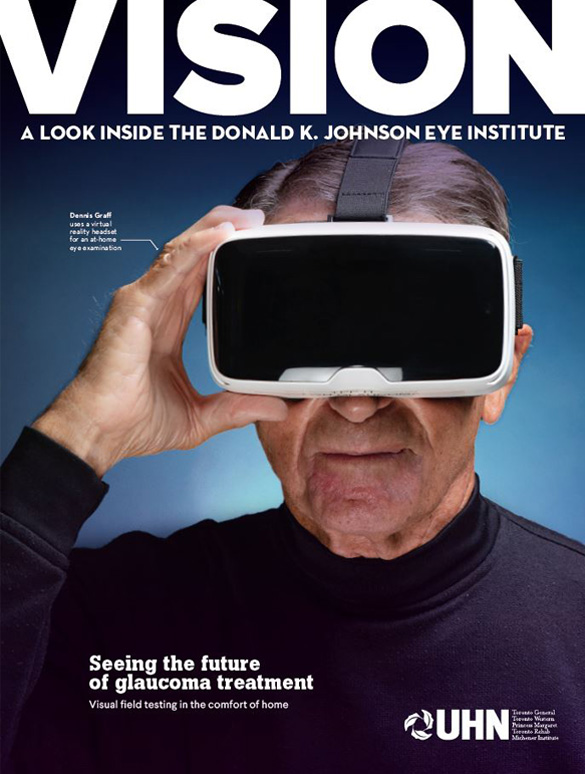When scientist Dr. Jeremy Sivak describes how delicate the optic nerve is, he points to a foam model of the eye that he uses for teaching. The place where the thin thread of foam representing the optic nerve should be is now damaged and torn – worn away by bringing the model out during lectures.
"It's easy to see how it's a mechanically weak spot," says Dr. Sivak, who is a senior scientist at the Donald K. Johnson Eye Institute at UHN.
That collection of fibres may be tenuous, but it's also crucial to our vision. The optic nerve sends information collected by our eyes to the brain to be translated into sight. Optic nerve damage – a key characteristic of the eye disease glaucoma – can cause blindness when the connection between information gatherer and interpreter is disrupted.
It's estimated that more than 400,000 Canadians live with glaucoma. That number may be much higher, since the disease comes on slowly, and people may not realize they have it until major damage has already been done.
But because the disease progresses slowly for most patients, there is a chance for doctors to stop it in its tracks. Neuroprotection, or shielding the optic nerve from damage, offers a way to do just that.
Dr. Sivak and his team, along with collaborators, have discovered a molecule that could protect the delicate optic nerve, thus sparing people from gruelling surgeries or, in the worst-case scenario, a life without sight.
"Neuroprotection is kind of an ultimate goal for glaucoma treatment," says Dr. Sivak, who also holds the Chair in Glaucoma Research at UHN.
In addition to preventing the disease from getting worse, it might even be possible to reverse the damage that's been done, says Donald K. Johnson Eye Institute clinical fellow Dr. David Mathew, who's researching neuroprotection with Dr. Sivak.
"Right now, we have no proven way to definitively reverse the damage. All treatments are aimed at stopping or slowing down the disease progression," he says. "That would be a big boon to our patients."

